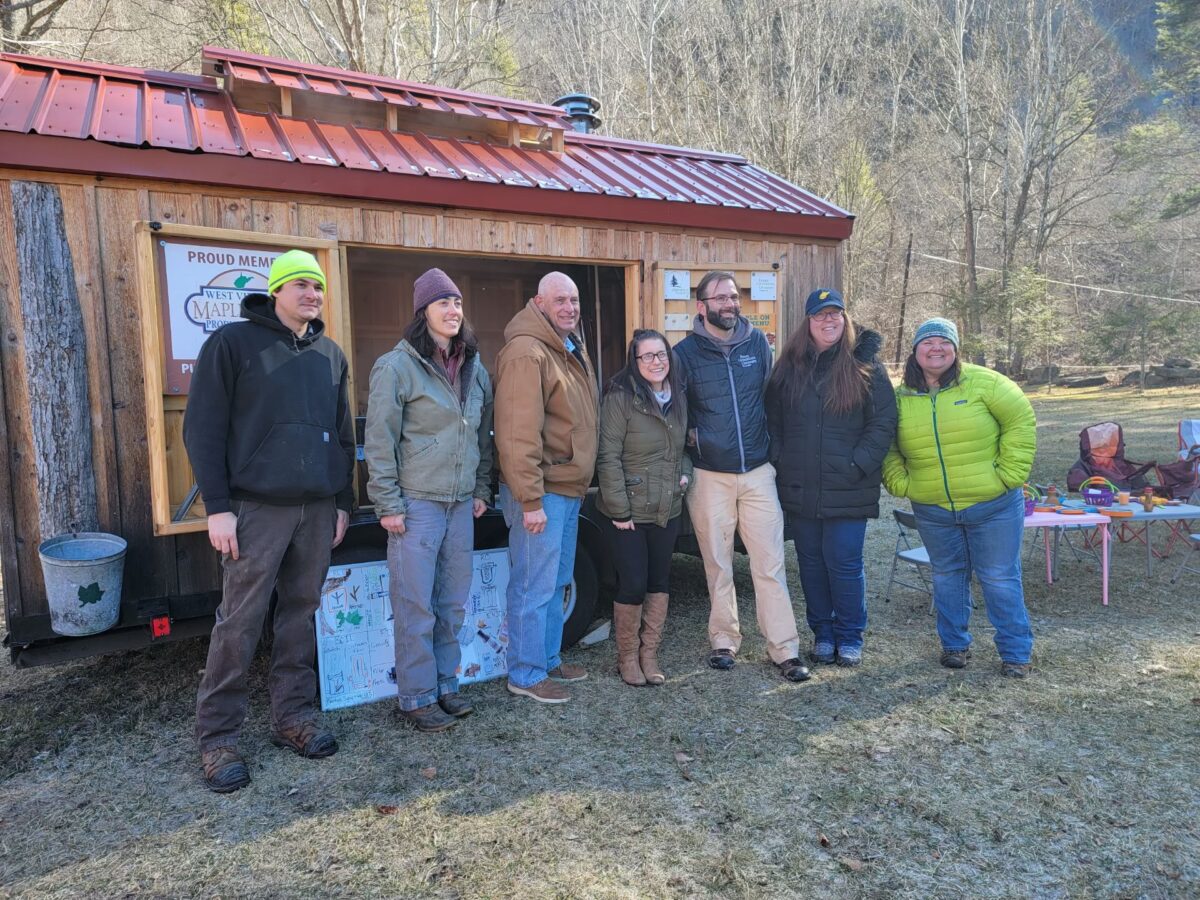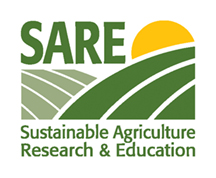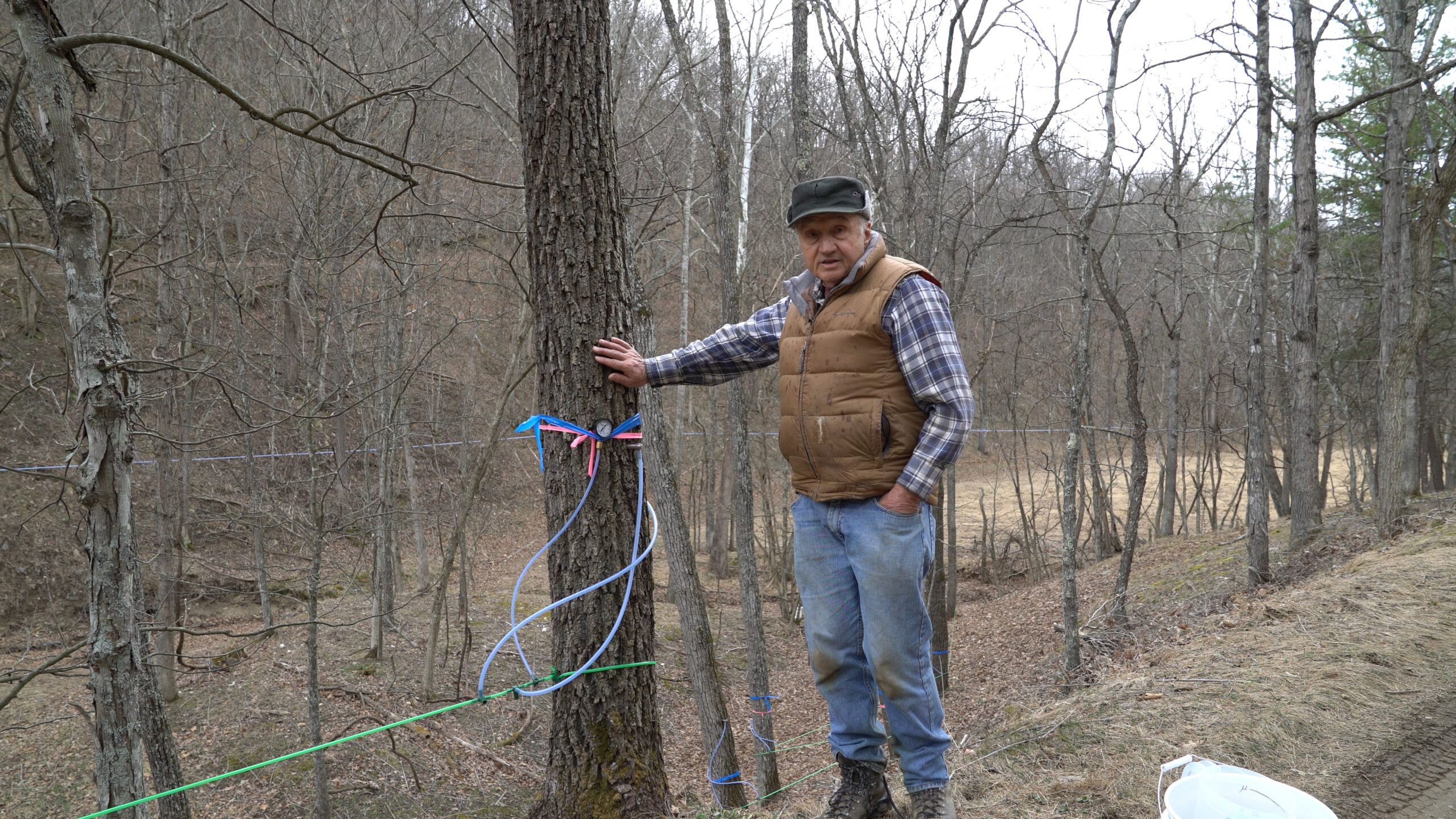
Researchers advance black walnut tapping for commercial syrup production, diversifying the industry and furthering niche market opportunities.
Walnut syrup is truly a novel product commercially. We knew of people making it on the home scale and, scientifically, that it could be done. There’d been some small- scale research into the process of making it similarly to maple and others, like birch, that were historically used by native people and early settlers as sugar alternatives. There was some science out there and some anecdotal evidence of this potential. We feel that we were part of the initial wave of taking it to the next step, making a commercially viable product and assessing market value ... with the partner producers we worked with.”
-Sarah Collins-Simmons, Partnership Grantee
A Truly Novel Product
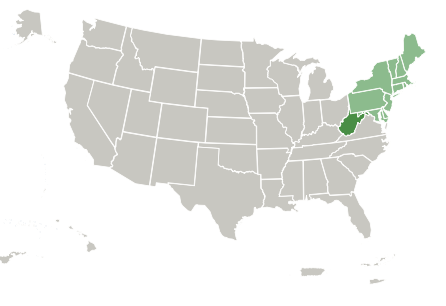
Region: Northeast
State: West Virginia
Grant Type: Partnership
Grant: ONE19-347
SARE POST-PROJECT EVALUATION IMPACT MODEL
This evaluation impact model is specific to this SARE-funded project.
Sustainability Impacts
The project grantees and stakeholders contributed to the following sustainability impacts:
- Environmental sustainability impacts
- Economic sustainability impacts
- Production efficiency impacts
- Social sustainability impacts
Grantee Indicators
(University Partner)
Project grantees (defined above) achieved sustainability impacts by engaging with the following indicators through involvement with project activities:
- Increased knowledge/skills
- Increased capacity/motivation
- Increased engagement
- Practice change
- Career growth
Stakeholder Indicators
(Landowners, Producers, Prospective Producers)
Project stakeholders (defined above) achieved sustainability impacts by engaging with the following indicators through involvement with project activities:
- Increased knowledge/skills
- Increased capacity/motivation
- Increased engagement
- Practice change
- Career growth
The Success Story
Researchers at Future Generations University (FGU) advanced non- timber black walnut (Juglans nigra) tapping for commercial syrup production by developing and improving upon walnut sap collection and small-scale syrup processing techniques.
The project team was successful in 1) advancing its understanding of the timing of walnut sap flow, 2) achieving increased sap flow through improved vacuum lines, 3) developing a walnut-specific tapping spout to reduce sap leakage and burden on trees and 4) developing a high efficiency, small-scale sap evaporator that lowers the barrier to entry for new walnut sugaring producers. Through these technical advancements, FGU along with its project partners strengthened a growing community of woodlot owners, active and prospective small- scale specialty syrup producers, and a broader network of research, industry, non-profit, and community partners supporting them. This work is contributing to syrup industry diversification and expanding profitable niche market opportunities for landowners with walnut stands in West Virginia and the Mid-Atlantic region.
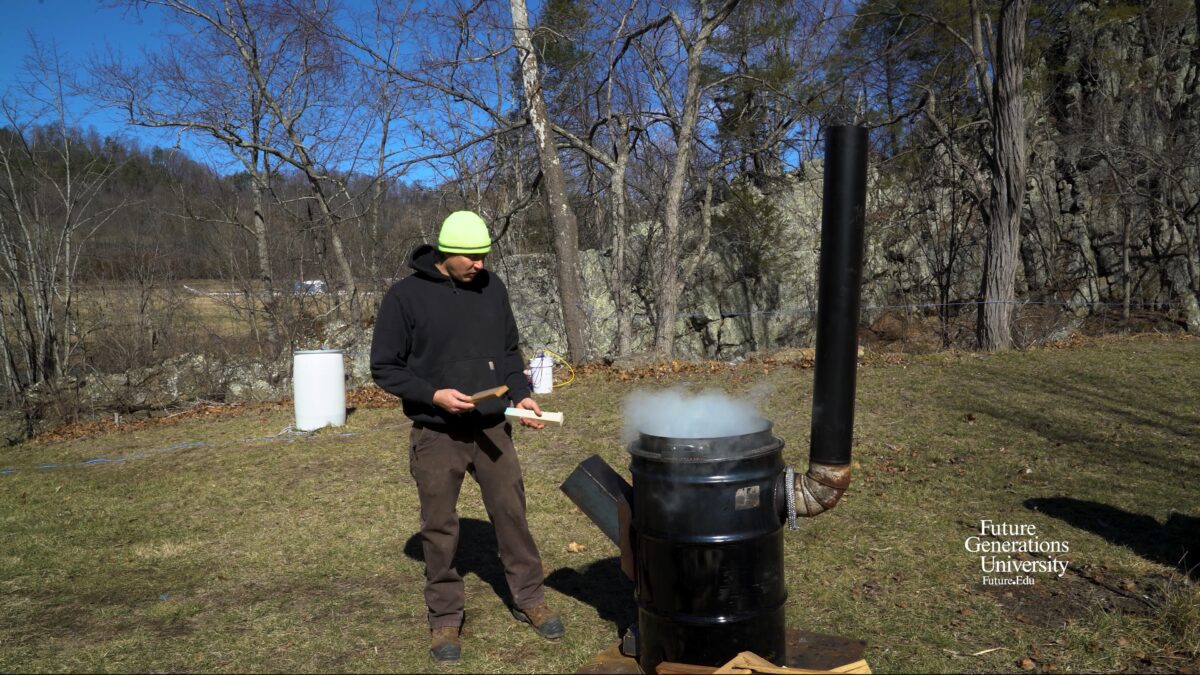
We believe in action research at Future Generations. By using that SEED SCALE approach, where we are a partner in the syrup industry in this region rather than an R1 [university] pushing our methodologies, answers the initial question ‘how did we do this?’ That’s how we did it. We earned the community’s trust over time. And it’s a small enough community that it was easy for us to be a part of it.”
—Sarah Collins-Simmons, Partnership Grantee
Earning Community Trust
Grantee (University Partner) Highlights
Dr. Michael Rechlin, Project Leader, and Sarah Collins-Simmons, Program Manager at FGU, Franklin, West Virginia, collaborated with West Virginia’s Marshall Advanced Manufacturing Center, landowners, and other researchers and educators on this work. This project was the first of three SARE grants made to FGU to advance knowledge and technologies to further alternative tree saps and syrup production. This increased knowledge is paying dividends in the form of enhanced capacity to innovate and improve understanding of the factors that contribute to higher production efficiency and profitability. Building new partnerships and strengthening existing ones was a centerpiece of this initiative. The FGU team’s approach to this work is anchored in a framework of community development born out of UN initiatives in the Global South and a related methodology developed at FGU called SEED-SCALE. This approach to successful community development centers engagement in partnerships among communities, government, not-for-profit organizations, and technical assistance providers/consultants.
Over the course of this walnut syruping research, FGU has become a trusted partner and resource to producers, providing consultations on the technical aspects of tapping, the industry and market side of the work, and at times playing a pivotal role in bringing people and groups together to support each other’s work and effect change. For example, FGU is directly involved in connecting producers to resources at the West Virginia State Department of Agriculture and connecting individual producers to one another before and during tapping season. The team also partners with producers working to grow the agrotourism industry around specialty syrups, including walnut as well as a maple-sycamore syrup blend.
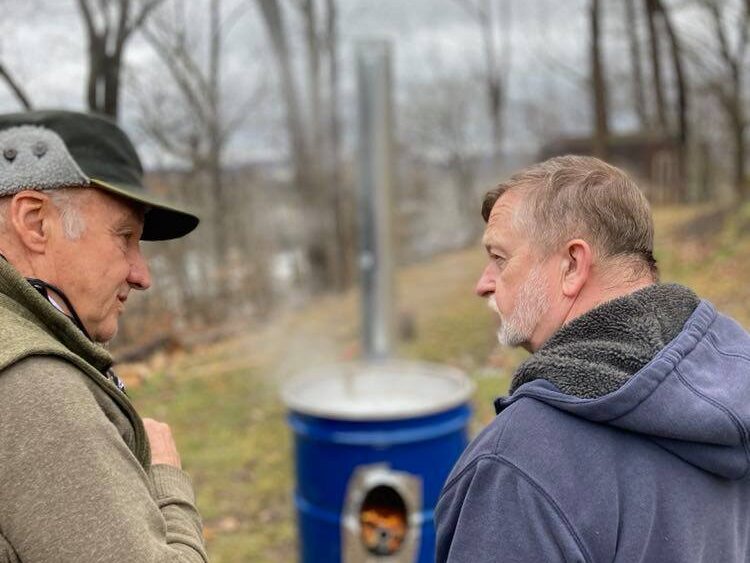
Other Stakeholder (Landowners, Producers, Prospective Producers) Highlights
Woodlot landowners, existing producers, and prospective producers are now benefitting from the momentum and advancements in walnut tapping enabled via SARE. Having played a catalytic role in developing the WV Maple Syrup Producers Association, FGU’s partnerships are helping growers expand into walnut and other tree syrup opportunities. From increasing awareness of walnut woodlots as non-timber income-generating opportunities to functioning as a technical resource and research partner, the FGU team serves as a central node in an increasingly strong and resilient network of West Virginian and Mid-Atlantic walnut syrup producers taking advantage of their own natural resources as well as the social and economic capital strengthened through this community.
Fostering Community
Future Generations University played a pivotal role in the development of the West Virginia Maple Syrup Producers Association, and we continue to be a player in the producers’ association. There is camaraderie there and the university has helped foster that camaraderie, so the partnerships felt very natural as a lot of the producers chose to expand into these alternative tree syrups via the research we were doing.”
—Sarah Collins-Simmons, Partnership Grantee
Sustainability Impacts
SARE funding contributed to increased production efficiency through the development of the rocket stove small-scale sap evaporation technology. In-field research directly with producers enabled real-world understanding of individual landowner’s needs and capacity, such as the labor and enterprise management factors that go into technological innovation for walnut tapping and syruping. FGU and its partners impacted social and economic sustainability by leveraging its research advances to secure additional funding for future work, bringing more producers online, and contributing to the growth of the specialty syrup industry. This work is also impacting land diversification efforts aimed at increasing household/landowner and community-level economic resilience. Through walnut tapping, additional farm income can be generated from wooded buffers and land otherwise unusable for food cropping or forage. Adding to the environmental benefits of efficient, clean burning rocket stove technology, this work also demonstrates that where walnut tapping stands can be managed to serve as riparian buffers, they also contribute to environmentally sustainable land management in their local and regional ecosystems. Project data demonstrating these impacts helped the FGU team successfully leverage additional funding from the US Forest Service to create landowner educational materials about woodlot and riparian buffer management.
We value our partnerships so highly. We are not trying to be the prime resource on other non-timber forest products. Other entities in our region have experts in woodland medicinals. They’ll identify a number of [trees] and provide the landowner that information and then talk to us about designing syrup production as part of diversification of their farm income, so we have partnerships at every level.”
—Sarah Collins-Simmons, Partnership Grantee
Partnerships at Every Level
